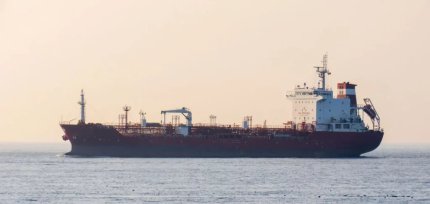Against the background of Western sanctions, Russia managed to increase its own shadow fleet for transporting oil by 70% compared to 2023.
Points of attention
- Russia significantly increased its shadow fleet for oil transportation by 70% despite Western sanctions, raising environmental concerns for EU countries.
- The use of old tankers without adequate insurance in Russia's shadow fleet poses a serious threat of large-scale environmental disasters in Europe.
- Creating 'shadow' sea zones in EU ports could help mitigate the risks associated with Russia's oil transportation using shadow tankers.
- The lack of systematic control over Russia's shadow fleet and the increasing role of old tankers increase the likelihood of major environmental problems in Europe.
- It is crucial to address the risks posed by Russia's shadow fleet through effective sanctions, improved insurance requirements, and enhanced regulatory frameworks to prevent catastrophic environmental consequences.
What is known about Russia's increase in its shadow fleet of oil tankers to circumvent Western sanctions
Journalists of the publication, referring to the report of the Kyiv School of Economics, note that the volume of oil of the aggressor country, which is transported by the shadow fleet of tankers, increased from 2.4 million barrels per day in June 2023 to 4.1 million in June 2024.
In particular, the tendency to increase the number of tankers in the shadow fleet is observed against the background of the increasingly frequent introduction of sanctions by the USA, Canada, Japan and EU countries regarding sanctions against international insurance companies and ship owners.

Sanctions against tankers were quite effective, but the campaign to mark the vessels was too limited to really curb Russia's shadow fleet, — explains Benjamin Hilgenstock, one of the authors of the Kyiv School of Economics report.
According to him, sanctions should be applied systematically to ensure the requirements for reliable insurance against oil spills.
Russia has put Europe on the brink of ecological disaster through the use of a shadow fleet
Currently, a large number of old tankers purchased by Russia pass through the Baltic Sea, the Danish Straits and Gibraltar without proper insurance, creating the risk of an environmental disaster for the EU.
Analysts of the Kyiv School of Economics propose to create "shadow" sea zones in EU ports to reduce the risk of an environmental disaster due to Russia's transportation of oil to circumvent sanctions by old tankers.
It is noted that otherwise Europe will continue to face a high risk of a large-scale environmental disaster.
The weak link in the regulatory framework, as well as the sharp increase in the role of shadow tankers in the Russian oil trade, mean that a major environmental disaster is only a matter of time. In June, 70% of Russian offshore oil was carried by the shadow fleet, which KSE estimated Russia spent $10 billion on. This is 89% of the total volume of crude oil supplies, most of which since mid-2023 traded above the limit price of $60 per barrel, and 38% of Russia's oil product exports, the report's authors emphasize.
Having decided to use the shadow fleet, Russia refused to maintain relations with its Western partners regarding the price ceiling they introduced for the sale of Russian oil.
This raised serious concerns about the quality, reliability and scope of insurance coverage. The combination of the age of the tankers—an average of 18 years—and the lack of reliable insurance makes these vessels extremely dangerous.
The risks are further increased by the fleet's use of anonymous ownership structures under the flag of gray-listed states. They often involve numerous intermediaries hidden behind multiple corporate structures.
The authors of the KSE report claim that in the event of problems, European countries may face costs of billions of euros to eliminate the consequences.



